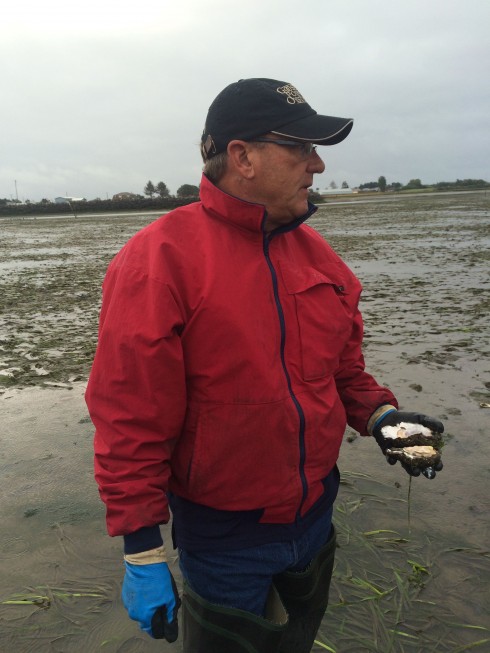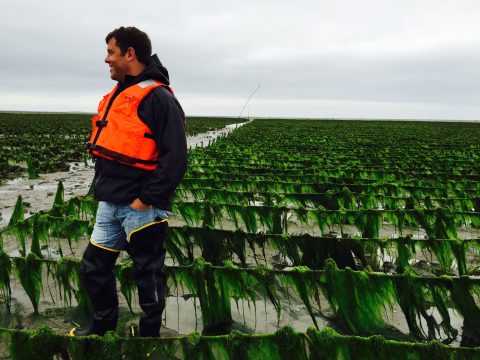
09.10.15
Walking in Someone else's Waders: A Spotlight on our Partners in the Shellfish Industry
By Gus GatesAs ocean users and coastal residents, we work with a variety of stakeholders and community members on the stewardship of our marine resources. Clean water is arguably the key cornerstone of our focused work at the Surfrider Foundation, and in the state of Washington some of the strongest advocates for clean water protections come from the family farmers in the shellfish industry, this post shines a bit of light on them and the important role that they play.
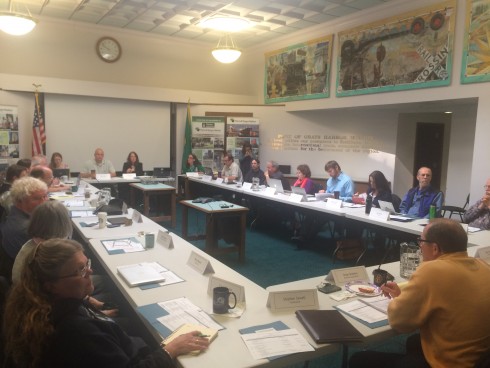 As appointed representatives of ocean recreation (non-fishing), we work with a range of stakeholders including shellfish growers on a variety of issues like marine spatial planning and ocean acidification.
As appointed representatives of ocean recreation (non-fishing), we work with a range of stakeholders including shellfish growers on a variety of issues like marine spatial planning and ocean acidification.
As the saying goes, "We're all in this leaky canoe together..."
Coastal issues are complex, and there is hardly ever a silver bullet to solving any of the challenges that we face. As Surfrider staff who have been appointed to represent a much larger recreational constituency beyond our own self interests or those of just our members and chapters, we value the working and respectful relationships that we've established over the years with the other stakeholders that we interact with. These stakeholders include commercial and recreational fishers, shellfish growers, community leaders, conservationists, elected officials, scientists, and state and federal agency representatives, among many others. When it comes to shellfish growers specifically, we work together on a variety of issues affecting the health of our marine ecosystem including marine spatial planning, shoreline master program updates, ocean acidification, marine debris, and protecting and improving water quality. Some have gone so far as to say that shellfish farmers are the "Canary in the Coal Mine" when it comes to ocean acidification and climate change, with great videos like this one telling their story and how they are trying to adapt to the challenges we are facing, it might be a decent analogy.
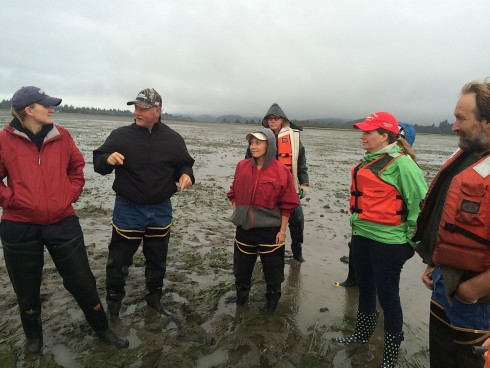 When pragmatic people get together and talk about solutions to challenges, good things happen. A few of the shellfish growers from the Willapa-Grays Harbor Oyster Growers Association.
When pragmatic people get together and talk about solutions to challenges, good things happen. A few of the shellfish growers from the Willapa-Grays Harbor Oyster Growers Association.
Burrowing Shimp & Willapa Bay
You might've heard some of the recent media attention focused on shellfish aquaculture in Willapa Bay, burrowing shrimp, and the proposed limited use of a pesticide in efforts to control a species that has become a pest, you can read more background on the issue here. I have to admit, having been born and raised on a small organic family farm on the Oregon Coast, I was a bit skeptical about the proposed use of a pesticide when this issue flared up this past spring. Rather than rush to some knee jerk reaction like many others did via social media, we felt the need to research this issue further and spend some time out on the estuary with the actual shellfish growers themselves to hear their perspective. It's important to understand how important the shellfish industry is to the economy of Pacific County, "In a population of around 20,500, as reported in 2013, the shellfish industry directly provides between 800 and 1,500 jobs, and generates nearly $45 million in total annual income for Pacific County workers." Read more in the recent report from Earth Economics.
We are very grateful to the Willapa-Grays Harbor Oyster Growers Association staff and members who took the time out of their busy schedules to talk with us and show us first hand some of the challenges that they face. After spending a morning on the water with them, it reaffirmed what I already knew in that these family farmers care deeply about the environment and the health of Willapa Bay. I personally witnessed first hand how many of the tidelands are quickly turning into goopy quicksand, lacking the species diversity found in other areas that haven't been hit as hard yet. I also observed off bottom culture techniques that some would point to as a solution, although what I saw was that they were sinking into the tide flat and either becoming marine debris or holding oysters that were in the process of dying of suffocation. You can take a look for yourself in the recent feature from KOMO News.
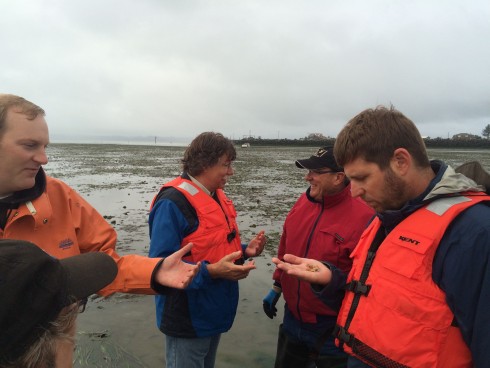 WA Coastal Program Manager Casey Dennehy looks at a Ghost Shrimp that have been causing big challenges to shellfish growing in Willapa Bay in particular.
WA Coastal Program Manager Casey Dennehy looks at a Ghost Shrimp that have been causing big challenges to shellfish growing in Willapa Bay in particular.
The Chinook Observer summed up my feelings pretty well in their recent editorial saying, "Without its scrappy, hard-working and diverse army of oyster growers, Willapa would be very poorly positioned to survive the onslaught of development swirling in the immediate future of Western Washington. Without them, the bay may be saved from pesticides but lost to everything else. They need smart partners with viable answers, not just people taking potshots." At the end of the day, we value our working relationship with the shellfish growers, some of them are even Surfrider Foundation members. Additionally, they are our neighbors, active community members, food producers, and fellow ocean stewards. Their perspective on so many of the issues that we work on and face like un-enlightened oil terminal proposals, ocean acidification, shoreline development, and protecting clean water are so crucial, it's important to continue to work together on the burrowing shrimp issue thru an ecosystem based approach towards common ground solutions.
-Gus Gates, Washington Policy Manager

